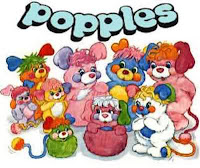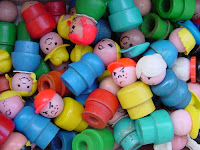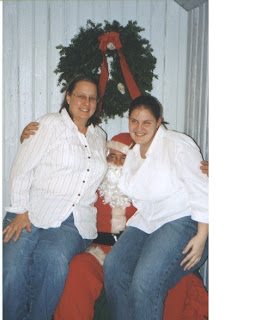Ann Heiser
This is my mother. She is kind, caring, energetic, and a big kid at heart.
I was always in my mother’s shadow, so to say she had a part in my childhood is an understatement. My mother not only nurtured and cared for me, she was a friend to me while growing up and still to this day. My mother taught me many things in life but the two most important things were to stand up for what I believed in and to be myself. As
I stated above, my mother is a big kid at heart, and there was a time when I was embarrassed to be seen with her; mainly because of the way she acted. As I got older, I realized how much she enjoyed life and I came to the conclusion that you can’t hide who you really are. My mother made me feel special because even with her busy working schedule, she always had time to be there for me. She read to me at night, even though she felt she couldn’t read very well. She helped me with homework, even though she didn’t feel she was smart enough too. My mother not only pushed me to be the best that I could be, but she pushed herself so that she could help me with whatever I needed.
I believe that I am who I am today because of my mother. She is a major influence to my life and still makes me push for what I believe in. I talk to my mother about three times a week, and at least once throughout our conversation she is making sure that I am happy with what I am doing. She is also making sure that I am pushing myself to my fullest ability and loving life while doing it.
Richard Heiser
This is my father. He is a hard worker, smart, and realistic.

I was a huge daddy’s girl growing up and still am today. I remember when I was younger, turning on my dad’s stereo and listening to the song, “Daddy’s Girl” sung by Red Sovine. I could listen, sing, and dance to that song for hours. Even at a young age, I knew how important my father was to me and my family.
My father worked a lot of long and hard hours and when he got home, it was known to leave him alone so that he could relax. Even though he was tired, my father always made the time to sit down with me and help me with my homework or sit down and play with me. My father taught me to be a strong, independent woman who knew right from wrong. He taught me to be realistic about the world and that life wasn’t always fair. I remember while growing up, my brother and I would always hear the saying, “You can’t always get what you want” (The Rolling Stones, 1968). When he was in a playing, sarcastic mood, he would walk around the house singing that song over and over again, until we stopped asking for something.
My father influences me today by still being there when I need him. One saying that always stuck in my head from my father was, “if you want the truth about something come ask me” My father was always blunt and to the point and when you needed advice that was going to help, you always went to him. He has helped me get through schooling and get through working at jobs where I felt I couldn’t go on. Due to this, I am the type of person who always has to tell the truth, even if it will hinder me.
Charlotte Heiser
This is my Nana or grandmother. She is strong, family oriented, and caring.
My Nana was like a second mother to me. She had a major part in my up bringing because I was always with her when I could be. All while growing up my Nana made me see that family was everything in life and that you had to cherish everything that you have and love. She also taught me to let things go and to not hold on to conflicts. Any time that I had a problem, I could go to my Nana and tell her what was going on. She would sit and listen and then tell me what she thought. In the end, it always came down to that life was short and you could not hold on to the small things.
When my Nana was diagnosed with pancreatic cancer she was told that she only had a few months to live. Not only did she live past those few months, she lived almost a year and a half later. Her determination to prove people wrong and her strength to keep going, let her meet her first grandson and to see his first year of life. We are so grateful for the time we had with her and she showed me that if you are determined to do something, you just have to work hard at it and it will happen. My Nana was a strong woman and I believe that my strength today comes from her. She taught me to cherish the things that I have and I am grateful to take the knowledge she gave me and pass it down to my future kids one day.
Ken Moehl
This is my Uncle Ken, or as I called him, Papa Ken. He is strict, funny, a handy man, and loved the military life.

Papa Ken was my godfather and like a second father to me. He watched me when my parent’s were working and on weekends when I wanted to come and stay the night. My Papa Ken taught me that I could be anything that I wanted to be. He taught me to work hard at school and do my best and I could choose any career out there. He cared for me just like I was one of his own children. The one thing that I remember the most about him, was all the camping trips I used to go on. At least once a summer we go to a campsite and I would help him get the pop up camper up and running and we would spend the weekend boating, fishing, and making s’mores.
Papa Ken influences me today because I took his hard work ethics and put it towards my schooling and my career.
Tamara Moehl
This is my cousin. She is fun, caring, and a big kid at heart.

Tammy is not only my cousin but my godmother. She lived with us for about a year when I was young. She cared for my brother and me when my parents were working and when they would have their date nights. Even as Tammy got married and had children she was still a major part of my life. She constantly invited me over to hang out and trusted enough in me to watch her children. Tammy taught me how to cook, bake, and sew, which is something that my parent’s couldn’t really teach me. Tammy was also always there to listen to me when I had problems at home. She never judged me and would always try to help me see both sides of a story. She also would always tell me the truth about things that I wanted to know. Growing up, my parents would “sugar coat” things that happened in our family because they didn’t think I could handle the truth. But she knew that I could and would talk to me like an adult and would answer any question I had. When my Papa Ken was killed, I had so many unanswered questions that my parents would never answer. I knew that by going to Tammy she would tell me anything that I needed to know so that I could gain closure with what happened.
Tammy has influenced me today because I learned to tell children the truth about things in ways that they would understand.
References: The Rolling Stones. (1968). Let It Bleed [CD]. London, England: Olympic Sound Studios.


















